*What is "Woke"
Published by Campbell M Gold in Misc · Wednesday 28 Feb 2024 · 3:15
Tags: Blog, Article, Page, Woke, Controversial, Meaning, Origin, Controversies
Tags: Blog, Article, Page, Woke, Controversial, Meaning, Origin, Controversies

So, What is "woke?"
This material, filled with sensitive and controversial content, is presented here not to influence your opinions but to ignite your academic curiosity. The information and interpretations herein do not reflect any opinion of this editor or our clients. Instead, they invite you to delve into a contentious but crucial re-evaluation.
The term "Woke" has sparked intense debates on political and cultural issues in recent years. These debates have covered various topics, from LGBT+ rights to News Media, highlighting its controversial nature...
So, What is "Woke?"
The term "Woke" was officially added to the Oxford English Dictionary (OED) in 2017. It means to be "awake to sensitive social issues, such as racism."
"Woke" is a term that frequently appears on social media and in the news. Depending on the context, it can be used as praise or criticism.
In the UK, Justice Secretary Dominic Raab said a new bill will stop free speech from being "whittled away by wokery."
The term "woke" has been weaponised, with its current usage markedly diverging from its racially charged origins.
What does "Woke" mean?
In 2017, the Oxford English Dictionary (OED) added the term "Woke" - but what does "Woke" mean? And where did the term originate from? To find out, let's look to the Oxford English Dictionary (OED) and the Urban Dictionary.
The OED originally defined "Woke" as being: well-informed and up-to-date. Now it's: alert to racial or social discrimination and injustice.
Urban Dictionary defines it as "being Woke," which means "being aware of what’s happening in the community (related to racism and social injustice)."
In other words, "Woke" = "consciously awake."
It’s not a new term, and like most street slang, "Woke" can be traced back hundreds of years. In 1962, a New York Times Magazine glossary of "phrases and words you might hear today in Harlem" defined "Woke" in its politically conscious state.
By 1972, a character in the Barry Beckham play "Garvey Lives!" says he’ll "stay Woke" via the work of pan-Africanist Marcus Garvey, with the line: "I have been sleeping all my life. And now that Mr Garvey woke me up, I’m going to stay Woke. And I’m gon’ help him wake up other black folk."
Though the term has been widely used among Black Americans, "#staywoke" only occurred in 2009. It has since become a rallying cry for the Black Lives Matter movement, representing a powerful call to action against ongoing racial injustices in the United States and elsewhere.
American singer-songwriter Erykah Badu is often credited with introducing the word to popular culture by singing "I stay Woke" in the 2008 track "Master Teacher."
Like most things, "Woke" has become a watered-down phrase ascribed to any vaguely enlightened act. For example, the term "woke bae" refers to a white man who believes that other people are equal to him.
Is "Woke" an Insult?
The term "Woke" is not inherently an insult. However, it has been weaponised in recent years to criticise and gag people – usually in arguments surrounding identity politics. Ricky Gervais recently said he hopes to live long enough to see the current generation "cancelled" by a generation more "Woke" than it. In Nov 2021, Jeremy Clarkson criticised Sir Lewis Hamilton for becoming too "Woke" amid the climate change movement.
Today, "Woke" has dethroned "Politically Correct" and "Snowflake" as the insult du jour for many internet trolls wishing to mock the hypersensitivity of the left - And so, it has become the weapon of choice for dissenters as well as the the self-righteous.
Source:
metro.co.uk
There are no reviews yet.



